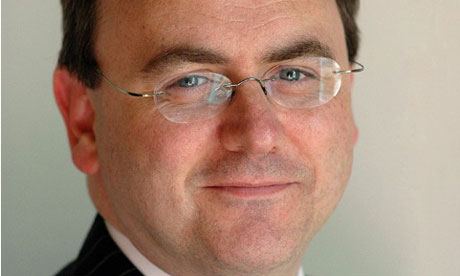Labour MP who quit as a minister rather than back Brown

David Cairns trained as a Catholic priest.
David Cairns, who has died aged 44 from acute pancreatitis, was the Labour MP for Inverclyde, who lost his ministerial job at the Scotland Office in 2008 after declining to express confidence in Gordon Brown's leadership. Cairns had been named in the media as a minister who was prepared to resign if Brown continued as leader. Offered the opportunity to recant publicly, he declined to do so and left the government instead, correctly predicting that the party's refusal to acknowledge the electorate's doubts about Brown's leadership would end in disaster. As Cairns pointed out, his record was of complete loyalty to the Labour party – "I am not some sectarian figure who is weaving around, dripping poison". However, having been in the forefront of a Scottish byelection campaign which Labour lost badly, Glasgow East, he knew that he must not ignore the messages from the doorsteps. No other minister followed his lead, though many shared his point of view, and the last real chance of a leadership coup petered out. Loss of ministerial office was a sore blow to Cairns, who was widely admired both as an able minister and an articulate advocate of Labour's cause, particularly in Scotland. But it was a principled decision by a principled politician. It was a matter of mutual pride to Cairns and many of his constituents that, when elected in 2001, he became the first Greenock-born MP to represent his home town, the old industrial core of the Inverclyde constituency. From a working-class background, he attended Notre Dame high school in Greenock before training for the Catholic priesthood. His education continued at the Gregorian University in Rome and the Franciscan Study Centre in Canterbury before Cairns emerged as an ordained priest in 1991. After three years of pastoral work, he became director of the Christian Socialist Movement and also of the federal body representing Labour's affiliated societies. As his direction moved towards political activism, Cairns became a parliamentary researcher in 1997 for Siobhain McDonagh, MP for Mitcham and Morden, and also a councillor in the London borough of Merton. His opportunity to enter the Commons arose when the MP for the Greenock constituency, Norman Godman, announced his intention to retire. Cairns's local credentials and passionate social commitment carried him through the selection process. However, the fact that he was still an ordained Catholic priest remained an impediment to him taking his seat when elected. McDonagh had already tried unsuccessfully to have the Clerical Disqualification Act of 1801 repealed via a private member's bill. Cairns's impending election as an MP added urgency to the need for reform and a repeal act was rushed through in 2001. After a stint at the Department of Work and Pensions as a parliamentary private secretary, Cairns was appointed in 2005 to the Scotland Office, which had been left with few powers and even less money following the devolution settlement. For a time, he also had responsibilities within the Northern Ireland Office added to his portfolio. Cairns invoked Richard Tawney, the Fabian economist and reformer, as his political hero, and this informed the causes he embraced. He was a persistent critic of the devolved administration in Edinburgh, whoever was running it, on account of its penchant for universal "free" benefits, whether higher education or prescription charges. As he pointed out, this did nothing for the poor of his constituency, who got these things free anyway, but acted as an expensive subsidy to the voters in Morningside. Cairns was an unusual MP, both through his hinterland and in the range of causes he supported. Both before he became a minister and subsequently, he was chairman of Labour Friends of Israel. The Jewish Leadership Council described him as "an exemplary public servant and staunch friend of Israel and the Jewish community". He was also chairman of the All-Party Parliamentary Group on HIV and Aids. Cairns is survived by his partner, Dermot Kehoe, his father, John, and brother, Billy. • David Cairns, politician, born 7 August 1966; died 9 May 2011
No comments:
Post a Comment